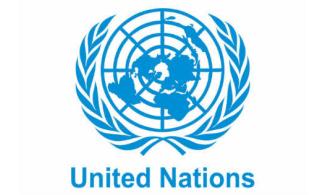
The UN agency further stated that it had only raised 42 percent of the required fund eight months into the year.
The United Nations says over 5,000 children in Northeast Nigeria would die of starvation in the next two months unless funds are urgently provided to redress the situation.
Reuters quoted John Mukisa, a nutritionist with the global body as the source of the information during a press conference he addressed last week.
"Up to 5000 children in Nigeria's Northeast are at the risk of dying in the next two months unless funds are urgently provided to feed them," he said.
The United Nations Office for Humanitarian Affairs (OCHA) disclosed that at least one billion dollars (seven hundred billion Naira) would be required to provide food aid for 5.5 million people including women and children in the insurgency-ravaged Borno, Yobe and Adamawa states this year.
The UN agency further stated that it had only raised 42 percent of the required fund eight months into the year.
The agency also disclosed that international donors had shifted funding to Ethiopia, Afghanistan and Ukraine which also require humanitarian assistance.
The local population in the three affected states are mostly farmers but insecurity in the region has combined with the rising cost of fertilizer and diesel to seriously jeopardize food production. This has been made worse by flooding and drought which are the fall-out of climate change.
President Muhammadu Buhari's government has repeatedly claimed it is winning the war against insurgency in the region and that some areas have been cleared.
The government has also said that internally displaced persons from the cleared areas could return and continue with their normal lives, but the affected people have been largely sceptical of such government assurances of security due to the persistence of insurgency.
Boko Haram and its offshoot, the Islamic State of West Africa Province (ISWAP) terrorists have been fighting government troops for over a decade and this has displaced millions of the local population.
While the government forces are fighting the terrorists, Islamic bandits and Fulani herdsmen have been invading and sacking communities in the North Central and some Southern states.